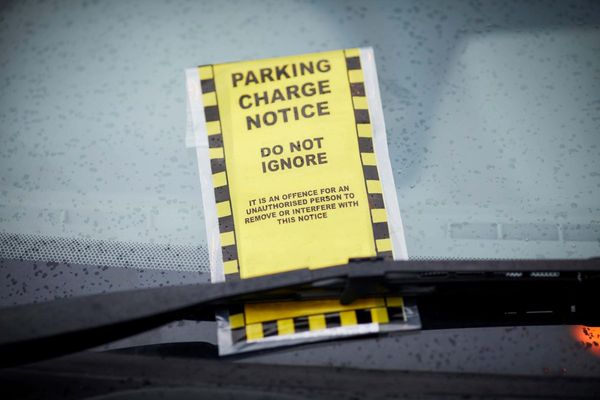WASHINGTON _ In just the last week, Bernie Sanders has confronted Walmart executives, marched with striking McDonald's workers, and articulated a robust defense of democratic socialism in America.
A normal campaign schedule, this is not.
Sanders' emphasis on picket-line activism is a reminder, his campaign aides say, of the Vermont senator's unique grassroots approach to politics _ one they are betting will distinguish him in a crowded Democratic presidential field.
Sanders, a self-described political revolutionary, has long embraced the socialist label and marched alongside progressive activists. But as his 2020 rivals _ most notably, Elizabeth Warren _ have adopted some ideas that are even further to the left than his own, Sanders hopes that a campaign that goes beyond rallies and position papers bolsters his claim that he is the most authentic progressive champion in the race.
"When I go out and I walk on picket line with low-wage workers, or when I stand with Walmart employees at a rally to put pressure on the board, what I am doing is using my position as U.S. senator to help organize grassroots folks to stand up and fight," Sanders said in a recent interview with McClatchy. "And when they do that, that's when change takes place.
"I see myself as part of a movement, because I believe that's the only way we bring about change," he added.
Sanders used a speech in Washington on Wednesday to defend democratic socialism, arguing that the philosophy was essential for the country to repel what he sees as the rising forces of racism, xenophobia, and corporatism.
Drawing a direct parallel to former Democratic President Franklin Delano Roosevelt, Sanders said an agenda of economic justice can and must be used to defeat President Donald Trump in the 2020 election.
"It is my very strong belief that the U.S. must reject the path of hatred and divisiveness and instead find the moral courage to choose a different path, a higher path, a path of compassion, justice, and love," Sanders said. "And that is the path that I call democratic socialism."
Sanders is the only major candidate in the Democratic field to call himself a democratic socialist, a label that is drawing the ire of not only Republicans, but some of his more moderate primary opponents. Former Colorado Gov. John Hickenlooper, for instance, plans to give a speech rebutting Sanders' economic vision on Thursday.
In his speech, Sanders criticized "the forces of oligarchy" he said were conspiring to keep their workers' wages down. A week ago, the senator took the unusual step of attending a Walmart shareholders meeting to criticize company executives in person who refused to raise the minimum wage to $15 per hour.
It's part of an ongoing effort from Sanders, who in recent years lobbied Amazon and other companies to raise their minimum wage. On Sunday, before a gathering of Democratic candidates in Iowa, he marched with striking workers from a local McDonald's, which his campaign aides were eager to promote.
Sanders also sent a letter to Senate Majority Leader Mitch McConnell last week, urging him to bring a bill to the floor that would boost the country's federal minimum wage to $15 an hour.
"I've walked on picket lines my whole life," Sanders said in an interview. "I've stood up for the working man my whole life. To me, this is nothing unusual."
If elected, Sanders said he would take the same approach in the White House.
"Fair to say that working people in this country will not have had an advocate as strong as me since FDR was president," he said.
Still, Sanders has confronted a field of Democratic opponents who have matched, or even exceeded, his calls for change. Warren and Sen. Kamala Harris, for example, have touted the need for a single-payer health care system. Other Democrats have also been quicker to call for Trump's impeachment or the end of the filibuster rule in the Senate.
Sanders is in second in most national and early-state polls of the Democratic primary, behind former Vice President Joe Biden while fending off Warren, a rival for many of the party's more liberal voters.
It's a different dynamic than the one he faced in 2016, when he took on the relatively moderate Hillary Clinton in what was effectively a two-candidate race.
"This time, you've got candidates who are coming left to match Sanders, and you've got candidates positioned in the middle and to the right, making the case that his policies go too far," said Mark Longabaugh, a Sanders adviser in 2016.
"It created a much different kind of campaign than the campaign we had last time, which in essence was a binary race," he added.






